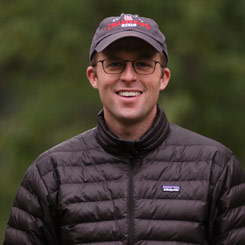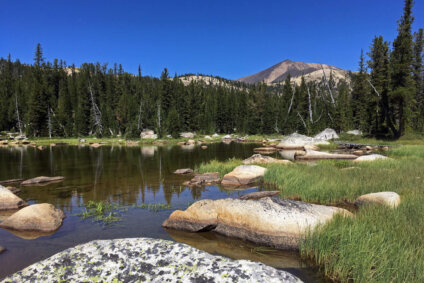In the Line of Fire
As the fire season drags on, our thoughts remain with those whose lives and homes are in jeopardy
As the fire season grows from bad to worse, Montanans across our beautiful state are steadily growing more alarmed. Entire communities have been evacuated, and it seems each day there’s a new neighborhood in the crosshairs of a conflagration.
Our thoughts and prayers are with those whose homes have either burned or are currently threatened. Our thoughts and prayers are also with those who are working so hard to save these homes. We are grateful to the firefighters, from volunteers in rural fire departments to members of federal hotshot crews, who are putting their lives at risk to keep us safe. We are also grateful for the remarkable work of people who manage our public lands, from the forest supervisor to the fire lab researcher, who have undertaken the monumental task of understanding fire and preventing its worst-case outcomes.
As water gauges on many eastern Montana streams drop below dust bowl levels and smoke makes our air unhealthy to breath, many Montanans are understandably angry and are demanding answers. But we can’t afford to let our anger divert us from a full understanding of the problem or distract us from supporting those working long hours and risking their lives to prevent the worst impacts of fires that are, in many cases, uncontrollable. Our firefighters have the most to lose from these terrible fire seasons, and we must ensure they have the resources they need to do their jobs safely.
To that end, the Wildfire Disaster Funding Act should become a top priority for Congress in the coming weeks and months. This bi-partisan bill is a no-brainer, and it deserves our full attention. It would change the way the federal government budgets for fighting wildfires, making it similar to how we respond to other natural disasters, such as floods and hurricanes. Under this bill, the agency would not be required to divert money away from non-firefighting programs to do the job of protecting our lives and property. This change would allow the agency to fight fires without abandoning important work to restore watersheds, maintain roads and trails, and protect wildlife habitat.
Climate change has lengthened fire seasons from five months in the 1980s to seven months in the present day. Average annual temperatures in the Western United States have increased 1.9 degrees and drought conditions have produced 250 large wildfires in western states between 2000 and 2012 – far more than similar timeframes in the 1980s and 90s.
These trends are likely to continue and efforts to curb them will require all Montanans to work together without pointing fingers at one another. Montana Wilderness Association staff, members, and volunteers look forward to being productive participants in these conversations and to working with Montanans of all political stripes on pragmatic solutions addressing the challenges of wildfire.
– Gabe Furshong, MWA interim director

Stay Connected
"(Required)" indicates required fields

